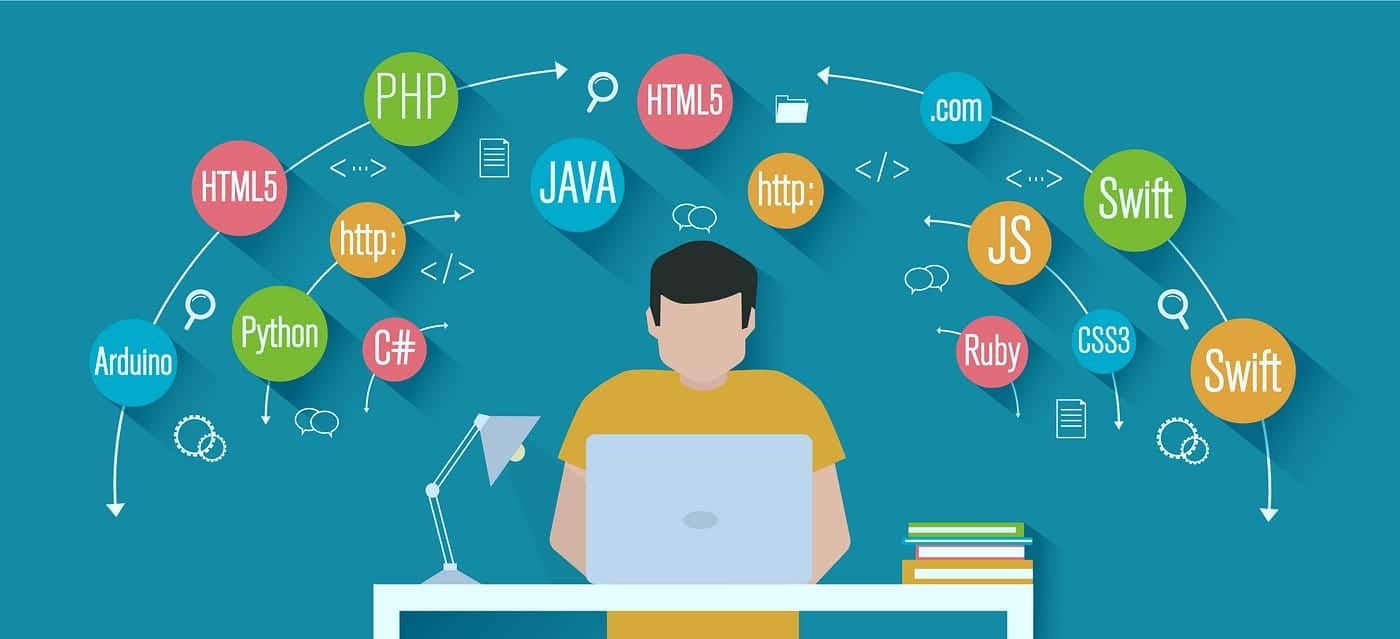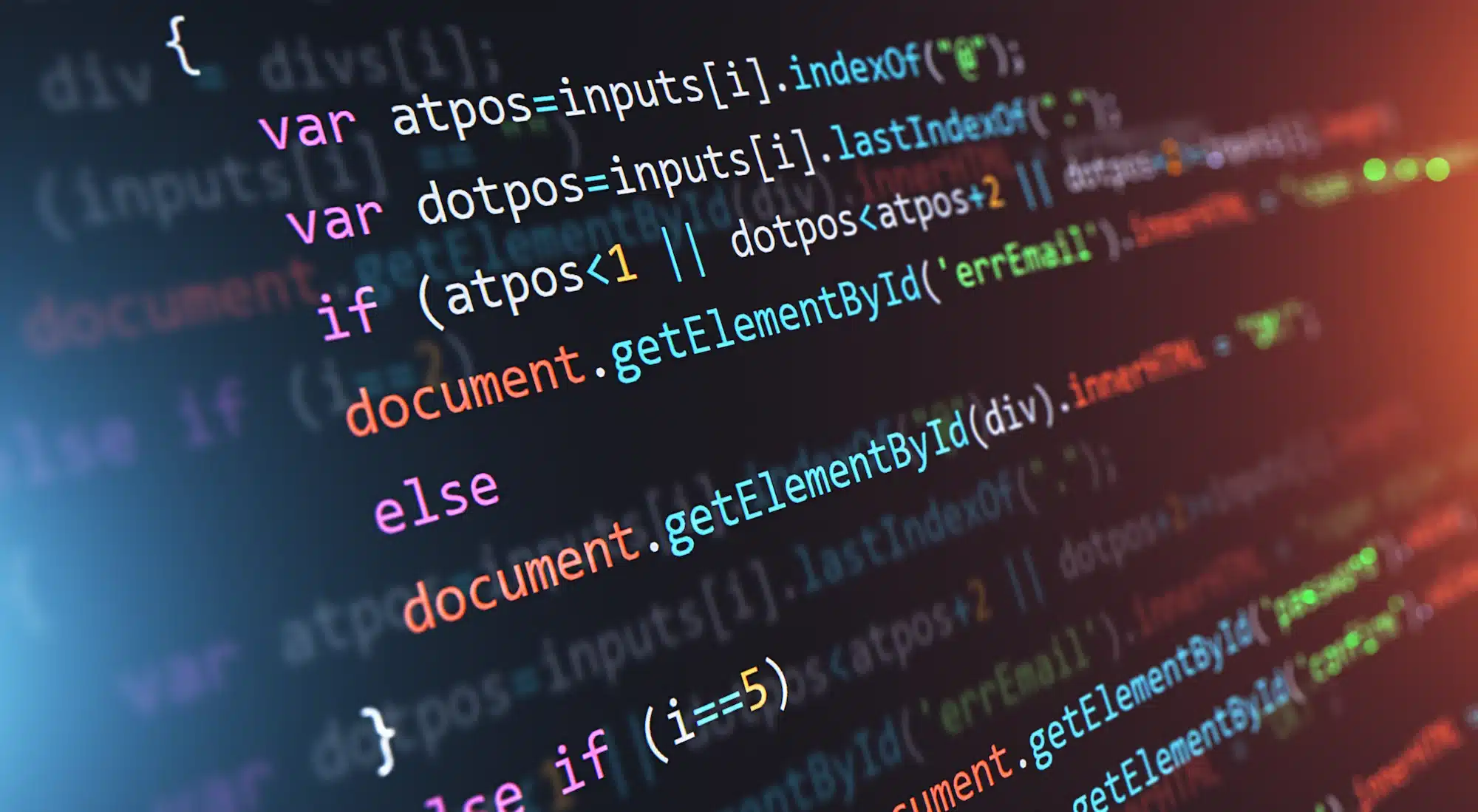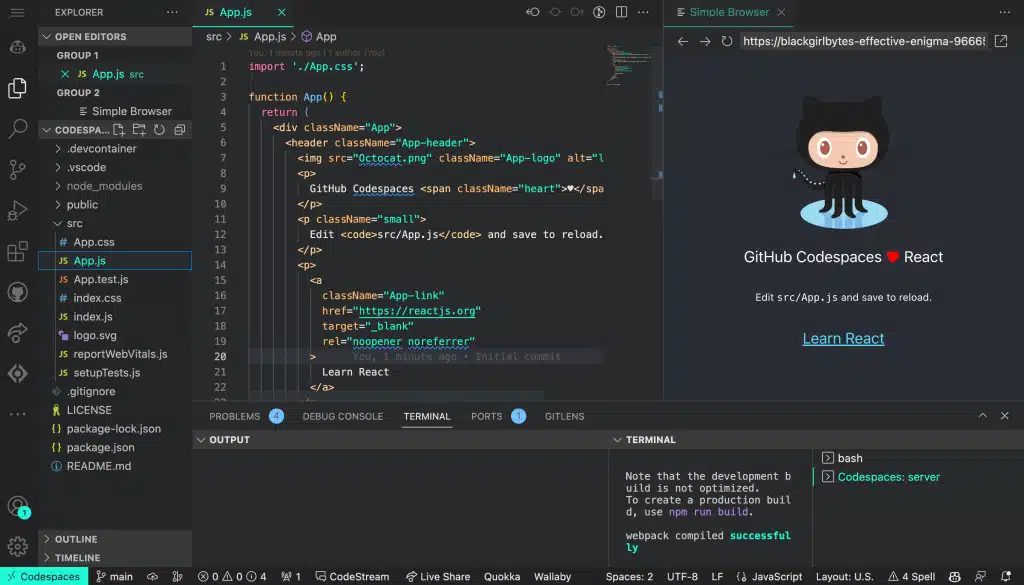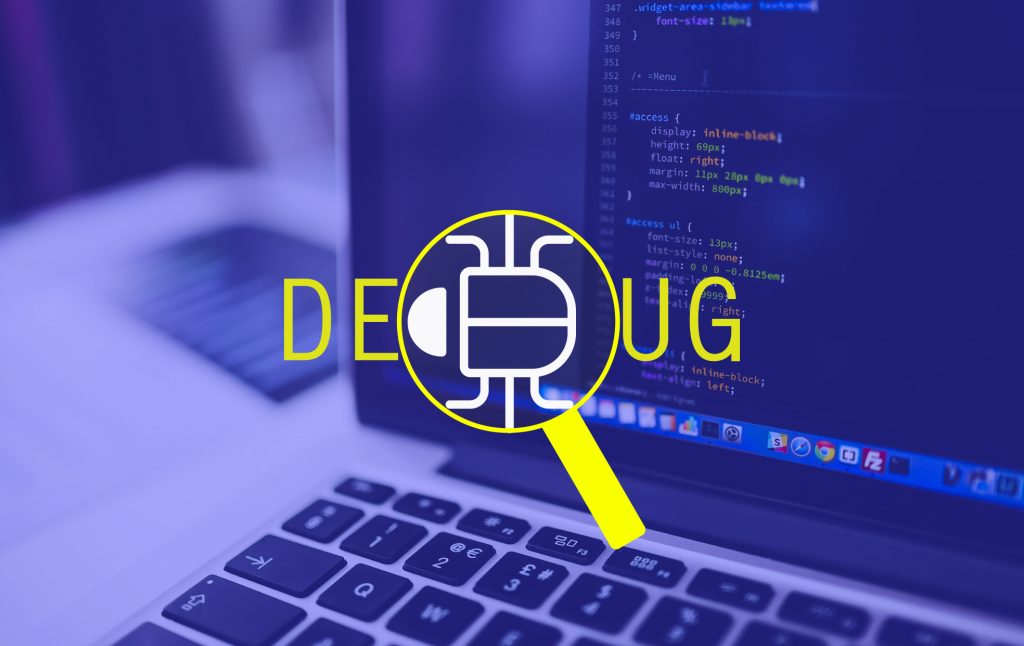With this in-depth tutorial designed specifically for novices, dive into the world of coding. Learn from industry professionals’ advice and step-by-step instructions to build a solid foundation for your programming endeavors. Unleash your potential and start along the road to greatness in coding.
Step 1: Choose a Programming Language
You must choose the programming language that best fits your objectives and interests as the first step in your exciting adventure into coding. Your choice will set the tone for your coding career and have an impact on the projects you can work on and the sectors you can choose.
Python: Python is a fantastic choice for novices because of its well-known user-friendliness and understandable syntax. You can concentrate on learning programming principles thanks to its clean structure rather than becoming confused by complicated syntax rules. In the well-known “Hello, World!” example, sending this message to the screen just needs one line of code: print(“Hello, World!”). This illustrates how straightforward Python is.
JavaScript: If you’re interested in web development, you can’t afford to ignore this language. JavaScript, the web’s native language, allowing you to include dynamic and interactive features on webpages. In addition to introducing you to the “Hello, World!” custom, the line console.log(“Hello, World!”); also shows you how to use JavaScript to communicate with browser consoles.
Java is a good option for those looking to build apps that can operate on several platforms because of its well-known adaptability and platform independence. Although Java can need a little bit more code than Python, its solid type system and extensive libraries provide worthwhile learning opportunities. Writing a little bit more code is required for the traditional Java “Hello, World!” application, as demonstrated in the example:
java
public class HelloWorld {
public static void main(String[] args) {
System.out.println(“Hello, World!”);
}
}
C#: Created by Microsoft, C# is a language designed specifically for creating Windows programs and video games. For software development on this platform, its interaction with the Microsoft ecosystem makes it a useful talent. The following sample C# code shows how to write “Hello, World!” to the console:
csharp
using System;
class Program {
static void Main() {
Console.WriteLine(“Hello, World!”);
}
}
These programming languages each have certain advantages and uses. Your decision should be in line with your long-term objectives, your interests, and the kind of projects you want to work on. Keep in mind that you are not limited by the language you begin with; the abilities you acquire will be transferrable when you explore other languages in the future.
Step 2: Set Clear Goals
Define your coding ambitions precisely during this crucial period. Decide if you want to build attractive websites, introduce new app development techniques, or explore the world of game development. Setting specific objectives will act as your North Star and guide you down the road of your educational adventure. You provide yourself a plan that coordinates your efforts and steers your coding education in a useful direction by defining these objectives.
Step 3: Learn Basic Concepts
It’s time to start the path of learning the foundational principles of programming once you’ve decided on your programming language and established your goals. These ideas serve as the foundation for your coding skills, allowing you to create useful and effective applications.
Variables: The capacity to store and manage data is at the core of programming. Variables serve as storage units for numerous kinds of data. You may easily refer to and change this data throughout your program by assigning values to variables like name = “Alice” and age = 25 in Python, for example.
Data Types: The different forms that data may take in programming are referred to as data types. Understanding data types is essential whether dealing with text, numbers, or more complicated structures. When using JavaScript, you may define a variable called a message to contain text by using the syntax let message = “Hello” or a variable called the number to keep numerical values by using the syntax let number = 42.
Conditional Statements: As programs develop, decisions must be made. Your code can take alternative pathways based on circumstances by using conditional statements. In Java, you can use the if-else construct to ascertain a person’s age to determine if they are an adult or a minor:
java
if (age >= 18) {
System.out.println(“You’re an adult.”);
} else {
System.out.println(“You’re a minor.”);
}
Programming relies heavily on repetitive activities, and loops let you run a section of code several times. A quick approach to iterate over a list of integers and show a count in C# is to use the for loop:
csharp
for (int i = 1; i <= 5; i++) {
Console.WriteLine(“Count: ” + i);
}
You can write dynamic, practical programs if you can master these fundamental ideas. Understanding variables, data types, conditional statements, and loops helps you build a solid basis for more complex projects and sophisticated coding approaches. These ideas cut across programming languages and make up the fundamental toolset you’ll need as you advance in your coding career.
Step 4: Practice Regularly
Adopting coding as a talent needs regular practice. In the same way that musicians perfect their trade by attending regular rehearsals, programmers hone their skills by setting aside time for hands-on practice. Take part in a range of activities to improve your coding skills.
Start with simple projects that represent your current level of expertise. These assignments provide you the chance to put the ideas you’ve studied to use in a real-world setting. Each project you complete, whether it be building a basic calculator, a straightforward webpage, or a text-based game, advances you.
Coding workouts and Challenges: Coding workouts and challenges help you hone your problem-solving abilities. There are several challenges available on websites like LeetCode, HackerRank, and Codecademy that are suited to different ability levels. These difficulties inspire creative solutions and critical thinking.
Step 5: Learn from Others
Getting advice from seasoned developers will be quite helpful to you as you learn to code. Your growth might be accelerated and you can be motivated to implement best practices by learning from their experiences.
Examine Code Repositories on Sites Like GitHub, Where Developers Share Their Projects Openly, to Learn from Experienced Developers. Analyzing their code exposes you to various programming idioms and approaches. Your comprehension of coding standards is improved by observing how seasoned developers organize their code, control complexity, and put solutions into practice.
Examples from the Real World: Open-source initiatives provide a window into the actual software development process. Examining well-maintained projects allows you to become familiar with extensive code bases and accepted best practices. Your ability to work with people, understand complicated code, and make a valuable contribution to group coding projects is improved by this experience.
Finally, moving further in your study of coding requires both constant practice and learning from others. Your coding abilities are strengthened by working on projects, challenges, and exercises, and they are deepened by studying code written by seasoned developers. By adopting both of these actions, you start on a road of programming innovation and constant development.
Step 6: Explore Online Resources
An variety of internet resources are available to help your learning of coding in the modern world. These tools act as your virtual mentors, providing direction, lessons, and a feeling of community.
Online classes and tutorials: A wide range of websites, including Codecademy, Coursera, Udemy, and Khan Academy, provide thorough coding lessons tailored exclusively for novices. These programs appeal to various learning styles and cover a variety of programming languages and ideas. Your coding skills will be improved by participating in these tutorials, which provide organized learning routes and expert-led teaching.
Interactive forums: You may connect with new and seasoned programmers in online coding groups and forums. You may post queries, seek guidance, and exchange thoughts on websites like Stack Overflow and Reddit’s programming subreddits. Discussions and problem-solving activities encourage a cooperative learning atmosphere.
Step 7: Embark on Project Building
A crucial stage in your learning to code journey is applying your gained knowledge to practical applications. You may combine ideas, increase your comprehension, and demonstrate your abilities to future employers or colleagues by creating projects.
Personal Website: Create your own online home by combining HTML, CSS, and JavaScript. This provides as a platform to highlight your abilities, initiatives, and achievements. By creating your website, you may demonstrate your originality and improve your front-end development skills.
Create a user-friendly application that helps users manage tasks effectively with a to-do list. Your programming abilities will improve as you handle user input, manage data, and integrate interactive aspects while creating a simple to-do list app.
Develop a calculator software to get started with application development. You learn about basic programming logic, processing user input, and mathematical operations with this project.
You can integrate these stages into your programming learning process to nurture technical skills and unleash creative expression. Also, you develop from a novice programmer into a professional coder by using online resources and creating concrete tasks, giving you the skills and experience necessary to take on increasingly challenging coding assignments.
Step 8: Hone Your Debugging Skills
The capacity to see and fix faults in your code becomes increasingly important as you grow in your learning of programming. A vital skill for any programmer is debugging, which is the act of identifying and resolving problems in your applications. Accept obstacles and difficulties as chances to improve your problem-solving skills.
Step 9: Embrace Collaboration
Rarely is coding a lonely activity. Working on projects with other programmers may produce amazing outcomes. Multiple contributors can cooperate on the same project thanks to platforms like GitHub, which offers an ecosystem for collaborative coding activities. You can learn to use version control systems, adjust to coding styles that are different from your own, and perfect the craft of constructive code review through cooperation.
Step 10: Embrace Lifelong Learning
The field of technology is always evolving, and this is also true of coding languages and tools. Take on an attitude of ongoing learning if you want to succeed in this changing environment. Maintain an open mindset and show interest in exploring new languages, frameworks, and paradigms. Participate in coding groups, go to workshops, and have an open mind to new difficulties. By adopting lifelong learning, you can present yourself as a relevant and creative programmer by ensuring that your abilities are always up to date and flexible.
Wrap up
Finally, these actions complete your transformation from a beginner to an experienced developer. Gaining technical skill via mastering debugging, supporting collaboration, and committing to lifelong learning also helps you develop resilience, flexibility, and a thorough awareness of the always evolving coding ecosystem.
Keep in mind that learning to code requires patience and time. Challenges shouldn’t demotivate you because they are a necessary element of learning. Celebrate your accomplishments along the road and continue coding regularly to advance your abilities.




